Fifteen Faculty Across the Disciplines Recognized with Tenure, Promotions

At the February meeting of the Board of Managers, 15 faculty members were approved for promotion.
Nine faculty members received tenure and promotion to associate professor:
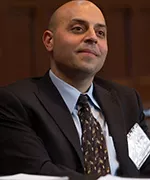
Sa’ed Atshan ’06, Peace & Conflict Studies
As an anthropologist and peace & conflict studies scholar, Sa’ed Atshan focuses his research on contemporary Palestinian society and politics, global LGBTQ social movements, and Quaker studies and Christian minorities in the Middle East. He published two books, Queer Palestine and the Empire of Critique (Stanford University Press) and The Moral Triangle: Germans, Israelis, Palestinians (Duke University Press), last year, and will next publish Paradoxes of Humanitarianism: The Social Life of Aid in the Palestinian Territories (Stanford University Press). Atshan also coordinates the Mellon Mays Undergraduate Fellowship Program at Swarthmore.
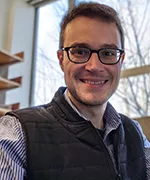
Victor Barranca, Mathematics
The research interests of mathematician Victor Barranca include applied mathematics, mathematical neuroscience, and network dynamics. In 2018, he earned a grant from the National Science Foundation to continue his work in uncovering the relationship between neuronal network structure and brain function, to which Swarthmore students have contributed. Barranca was a postdoctoral research associate at New York University, where he collaborated on projects at the Courant Institute of Mathematical Sciences, NYU Abu Dhabi, and Shanghai Jiao Tong University.
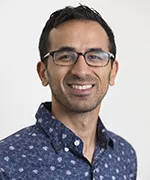
Syon Bhanot, Economics
Behavioral and public economist Syon Bhanot centers his research on field experiments that use behavioral science concepts to influence decision-making, with a focus on pro-social behavior and issues related to public policy, development, and poverty. He has also extended opportunities to Swarthmore students through his efforts as a research affiliate at the Busara Center for Behavioral Economics and as a founding member of the Philadelphia Behavioral Science Initiative. In 2020, Bhanot appeared in multiple media outlets discussing ways to encourage pro-social behavior in the fight against Covid-19. Bhanot is also a senior researcher at the Applied Cooperation Team at the Massachusetts Institute of Technology.
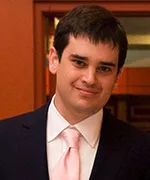
Sam Handlin ’00, Political Science
The teaching and research of political scientist Sam Handlin focuses on the comparative politics of developing countries, with a regional emphasis on Latin America and a substantive focus on democracy, authoritarianism, and electoral politics. Handlin is the author of State Crisis in Fragile Democracies: Polarization and Political Regimes in South America (Cambridge University Press, 2017) and the author/editor of Reorganizing Popular Politics: Participation and the New Interest Regime in Latin America (Pennsylvania State University Press, 2009). He has also been published in numerous academic journals. Before coming to Swarthmore, Handlin served as a visiting fellow of the Kellogg Institute for International Studies and taught for six years at the University of Utah.
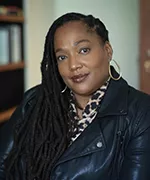
Nina Johnson, Sociology & Anthropology
Sociologist Nina Johnson’s research interests lie in the areas of inequality, politics, race, class, culture, stratification, and mobility. Her current research is a multimethod study of the impacts of mass incarceration at the neighborhood level, which is complemented by her teaching in urban sociology, and race and public policy in state correctional institutions in Pennsylvania. She is a member of the Graterford Think Tank and the Chester Think Tank (about which she recently spoke in the Bulletin), communities of scholars who work together to raise the level of public awareness of issues related to the criminal legal system and provide opportunities for engagement across the physical and social barriers that prisons create.
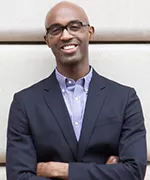
Joseph Derrick Nelson, Educational Studies
A sociologist of education, Joseph Derrick Nelson uses interdisciplinary frameworks to examine two interrelated fields of inquiry: race, boyhood, and education, as well as identity, culture, and school reform. In recent years, his research has been situated within learning environments that largely serve Black students from neighborhoods with concentrated poverty. He is a senior research fellow with the School Participatory Action Research Collaborative and his multi-year projects to date have led to publications with Teachers College Record, Harvard Educational Review, the Psychology of Men and Masculinity, and co-editing a special issue on boys’ education with the Journal of Boyhood Studies.
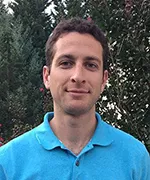
Marc Remer, Economics
Economist Marc Remer’s research areas include antitrust, mergers, collusion, industrial organization, and the retail gasoline industry. Before joining Swarthmore, he spent five years as an economist in the Antitrust Division of the U.S. Department of Justice, where he was awarded the Assistant Attorney General Award of Distinction. His work has been published in numerous academic journals, including the Journal of Industrial Economics, the International Journal of Industrial Organization, the Journal of Economics and Management Strategy, Economics Letters, and the Antitrust Bulletin.
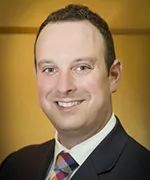
Jed Siev, Psychology
Psychologist Jedidiah Siev investigates clinical psychology, obsessive-compulsive disorder (OCD), anxiety disorders, body dysmorphic disorder, and meta-cognition (thinking about thinking). He conducts research on the development, maintenance, and treatment of anxiety disorders, especially OCD, with a particular interest in cognition. Before coming to Swarthmore, Siev was an assistant professor in the College of Psychology at Nova Southeastern University, where he directed the Anxiety Treatment Center and its OCD and Related Disorders Program. He is a licensed clinical psychologist in Pennsylvania and Florida.
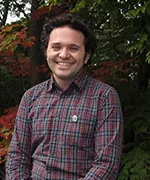
Tristan Smith, Physics
Physicist Tristan Smith explores early universe cosmology, tests of modified theories of gravity, and analysis of the cosmic microwave background. In 2019, he received a Cottrell Scholarship to develop a new, robust test of gravity by comparing the deflection of light around galaxies to the motion of stars within those galaxies. The honor also furthered his efforts to develop a curriculum to help research students at Swarthmore communicate science to general audiences. Before coming to Swarthmore, Smith was a postdoctoral fellow at the Berkeley Center For Cosmological Physics.
Two faculty members were promoted to associate professor (non-tenure track):
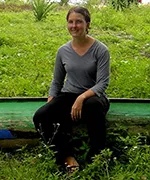
Emily Gasser ’07, Linguistics
The research interests of linguist Emily Gasser include Austronesian languages (particularly Eastern Malayo-Polynesian and SHWNG), Australian languages, Wallacea and northwest New Guinea, language documentation and fieldwork, generative phonology, language contact and change, language endangerment, and computational phylogenetics. Before coming to Swarthmore, she was a postdoctoral visitor at the Center for Endangered Languages Documentation, Universitas Negeri Papua, in Manokwari, Indonesia. This fall, Gasser co-presented a paper on language technology and media at the meeting of the Arizona Linguistics Circle.
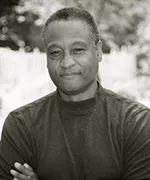
Ron Tarver, Photography
Photojournalist Ron Tarver has distinguished himself in the field of fine art photography. Before joining Swarthmore, he was a staff photojournalist at The Philadelphia Inquirer for 32 years, sharing in the 2012 Pulitzer Prize for his work on a series documenting school violence in the Philadelphia public school system. Tarver’s work has also appeared in National Geographic, Life, Time, Newsweek, Sports Illustrated, Black & White Magazine, and other publications. He is co-author of We Were There: Voices of African American Veterans (HarperCollins, 2004), which was accompanied by a traveling exhibition that debuted at the National Constitution Center in Philadelphia. Tarver is also a recipient of the prestigious Pew Fellowship in the Arts.
Three faculty members were promoted from associate to full professor:
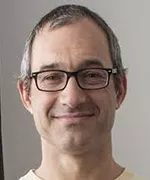
Nick Kaplinsky, Biology
Biologist Nick Kaplinsky centers his research on the molecular genetics of plant abiotic stress response, and teaches plant biology and genomics. He also supervises a lab that uses molecular genetics, cell biology, and biochemistry to study how plants sense and respond to high temperatures and ensure normal growth and development even when exposed to temperature stresses. The lab primarily uses Arabidopsis thaliana as a model system to identify and understand the functions of and connections among the genes involved in the cellular processes related to coordinating temperature responses and development. Over the years, research in Kaplinsky's lab has been supported by The Friedman Fund, HHMI, and grants from the National Institutes of Health.
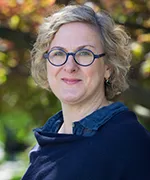
Barbara Milewski, Music
Musicologist Barbara Milewski specializes in Polish music and has lectured extensively on questions of national identity and memory in the music of Chopin; songs created in the Nazi concentration camps; and, most recently, the music of Poland’s iconic postwar film Zakazane piosenki, for which she also created the first-ever English subtitles. Her work has been generously supported by fellowships and prizes awarded by the National Endowment for the Humanities, the American Musicological Society, the U.S. Holocaust Memorial Museum, and other organizations. She is completing a book-length study on the music making of prisoners in Sachsenhausen, Buchenwald, and Auschwitz-Birkenau.
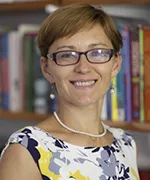
Lilya Yatsunyk, Chemistry
The research interests of bioinorganic chemist Liliya Yatsunyk include design, synthesis, and characterization of porphyrin-based drugs. She supervises a Swarthmore lab focused on these antitumor drugs that function via inhibition of telomerase. Students are exposed to various aspects of bioinorganic chemistry, getting the opportunity to gain knowledge and experience in a broad range of techniques with multiple applications. The long-term goal of the research is to contribute to the development of more potent porphyrin-based telomerase inhibitors. Yatsunyk has recieved multiple research grants over the years and in 2018 and 2019, served as visiting scientist at the Slovenian NMR Centre and the European Institute of Chemistry and Biology with support from the National Institutes of Health.
One faculty member was appointed, upon the recommendation of President Valerie Smith, to the Stephen Lang Professorship of the Performing Arts:
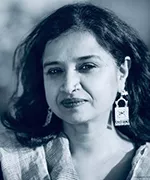
Pallabi Chakravorty, Dance
Pallabi Chakravorty’s research and artistic works bring disparate bodies of material into dialogue with each other. Her research and writing on the transformation of the Indian performing arts have forged an original and critical approach to contemporary dance anthropology and dance studies that challenge a Western epistemological gaze and taken-for-granted categories for investigation. Her academic research is located at the intersections of visual and performing arts, history and anthropology, film and media studies, gender and postcolonial studies, religion, and bodies. Chakravorty is also an active dance maker and cultural worker and a lifelong student of classical Indian dance. Her choreographies combine her training in anthropology and Kathak dance to express a postcolonial modernist voice that is deeply personal, but embraces the collective.



